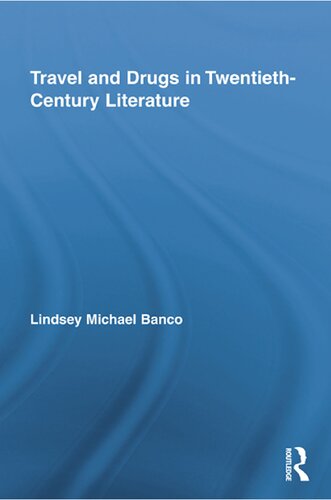

Most ebook files are in PDF format, so you can easily read them using various software such as Foxit Reader or directly on the Google Chrome browser.
Some ebook files are released by publishers in other formats such as .awz, .mobi, .epub, .fb2, etc. You may need to install specific software to read these formats on mobile/PC, such as Calibre.
Please read the tutorial at this link: https://ebookbell.com/faq
We offer FREE conversion to the popular formats you request; however, this may take some time. Therefore, right after payment, please email us, and we will try to provide the service as quickly as possible.
For some exceptional file formats or broken links (if any), please refrain from opening any disputes. Instead, email us first, and we will try to assist within a maximum of 6 hours.
EbookBell Team

4.8
54 reviewsThis book examines the connections between two disparate yet persistently bound thematics -- mobility and intoxication -- and explores their central yet frequently misunderstood role in constructing subjectivity following the 1960s. Emerging from profound mid-twentieth-century changes in how drugs and travel were imagined, the conceptual nexus discussed sheds new light on British and North American responses to sixties counterculture. With readings of Aldous Huxley, William Burroughs, Alex Garland, Hunter S. Thompson, and Robert Sedlack, Banco traces twin arguments, looking at the ways travel is imagined as a disciplinary force acting upon the creative, destabilizing powers of psychedelic intoxication; and exploring the ways drugs help construct travel spaces and practices as, at times, revolutionary, and at other times, neo-colonial. By following a sequence of shifting understandings of drug and travel orthodoxies, this book traverses fraught and irresistibly linked terrains from the late 1950s up to a period marked by international, postmodern tourism. As such, it helps illuminate a world where tourism is continually expanding yet constantly circumscribed, and where illegal drugs are both increasingly unregulated in the global economy and perceived more and more as crucial agents in the construction of human subjectivity.